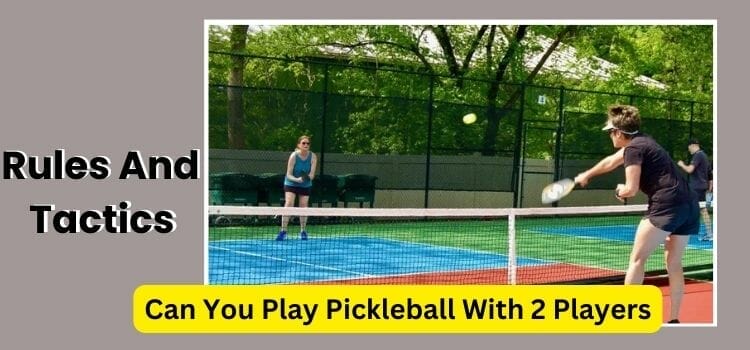Is Pickleball An Olympic Sport
Key Takeaway:
- Pickleball is not currently an Olympic sport, but efforts are being made to increase its popularity and facilities in order to meet the criteria set by the IOC for inclusion in the future.
- Pickleball is a growing sport in the United States, with an increasing demand for playing areas and numerous tournaments and players.
- The criteria for Olympic inclusion includes regulation by an NGO, following the Olympic anti-doping code, popularity around the world, and international recognition. While pickleball has made strides in these areas, challenges still remain to be overcome for it to become an Olympic sport.
Is Pickleball An Olympic Sport?
As I ponder the possibility of playing one of my favorite sports at the Olympic level, I can’t help but wonder – is pickleball an Olympic sport? To better understand the answer to this question, we’ll delve into the overview of pickleball, a fun paddle game with unique origins. Next, we’ll explore the rapid growth of pickleball in the United States in recent years, and how this might impact its chances of being included in future Olympic Games. Let’s dive into the world of pickleball and see what it takes to become an Olympic sport.
Overview of Pickleball
Pickleball, a racquet sport combining elements of tennis, badminton, and table tennis, has been gaining popularity over the years in the United States. It is played on a smaller court than tennis, with paddles and a plastic ball with holes. The sport’s simplicity and ease of learning have contributed to its rise in popularity among all ages.
In recent years, there has also been an increasing demand for playing areas and tournaments for pickleball players. Many recreational centers, parks, retirement communities have converted their tennis courts or constructed new ones solely for pickleball usage. Pickleball tournaments are being held nationwide with cash prizes to be won.
Furthermore, as per the International Olympic Committee (IOC), a sport must fulfill certain criteria to be considered for inclusion in Olympics. These include having regulation by an NGO, following the Olympic movement anti-doping code, achieving global popularity and recognition. Although pickleball may not yet fulfill some of these criteria completely as it is still on a rising trend globally but efforts are being made by organizations like USAPA (USA Pickleball Association) and IFCPF (International Federation of CP Football) to get it included in future Olympics.
It is important not to underestimate the growth of this sport and take necessary actions from the grassroots level towards achieving global recognition for Pickleball should it meet at least most if not all criterion set forth by IOC before other sports fill that gap.
Pickleball is spreading like a contagious disease in the US, but instead of causing a fever, it’s creating an addiction to hitting a small ball with a paddle.
The Growth of Pickleball in the United States
Pickleball’s Rise in Popularity in the United States
The emergence of pickleball as a popular sport can be attributed to its simplicity and versatility, making it accessible for players of all ages and skill levels. Its growth in the United States is evident with the numerous new facilities being built across the country, including both indoor and outdoor courts. Many local parks and community centers are also scheduling open play times for pickleball lovers.
Moreover, professional organizations have been established to promote competitive play through tournaments across the country. This has led to increased media exposure and sponsor interest, further driving growth in popularity and participation.
It is important to note that this growth has not gone unnoticed by national sports bodies, such as USA Pickleball Association (USAPA), which seeks recognition from International Olympic Committee (IOC) for inclusion in future Olympic Games.
However, despite its rapid rise in popularity, there are still voices that question pickleball’s suitability for Olympic competition. While closely adhering to the IOC’s criteria for inclusion will certainly help its case, it remains to be seen whether or not pickleball will earn a place on the world’s biggest stage of sports competition.
In an effort to further grow awareness and support for this unique sport, many players demonstrate their passion by sharing personal anecdotes about how they discovered pickleball or how it changed their life both physically and socially. Such stories are powerful tools that can help draw more people to engage with this exciting sport community firsthand.
Playing pickleball professionally may not make you rich, but it will definitely give you more friends than money ever could.
Is Pickleball a Professional Sport?
As an avid pickleball player, I’ve often wondered about the sport’s professional status and its potential for Olympic recognition. In this part of the article, let’s explore whether pickleball is a professional sport. We’ll take a closer look at the sport’s top tournaments, players, and prize money. Additionally, we’ll examine the increasing demand for pickleball playing areas, as reflected in the growth of new pickleball facilities around the world. Join me as we dive into the exciting world of professional pickleball.
Pickleball Tournaments and Players
Pickleball tournaments take place across various categories, from amateur to professional, national to international levels.
As one of the fastest-growing sports globally, Pickleball has attracted several notable players who participate in major tournaments worldwide. Major international pickleball tournaments include US Open Pickleball Championships and International Indoor Pickleball Championship.
Professional Pickleball players earn substantial amounts of money through sponsorships, prize money and other sources. The top earners in the sport earn six-figure salaries annually.
Apart from major tournaments, there are also regional and local events that attract players of all levels, contributing to the overall growth of the game. The role of organizers is critical in creating an environment where players can showcase their skills while attracting new sponsors to invest in the sport’s future development.
Pickleball tournaments attract a multitude of people from varying age groups and backgrounds. As a result, this inclusive nature contributes significantly to its rapid growth and increasing popularity – paving the way for further advancements.
The growing demand for Pickleball playing areas stresses the need for more sophisticated facilities with updated infrastructure. Focusing on factors such as resources’ availability may dim potential avenues for upcoming athletes. Therefore it becomes increasingly necessary to integrate technology-driven resources like AI algorithms that can improve player performance metrics while simultaneously contributing positively towards physical health outcomes.
Don’t miss out on participating in or watching some thrilling games at Pickleball Tournaments and seeing some amazing players show off their exceptional skills. Joining games will let you stay active while meeting new people at the same time – So start now!
Looks like the demand for Pickleball playing areas is giving Tennis a run for its court.
The Increasing Demand for Pickleball Playing Areas
With the popularity of Pickleball on the rise, there has been a significant increase in the demand for areas to play. As more people become interested in this sport, there is an urgent need for additional courts to meet the increasing demand for pickleball playing areas. This demand is not only limited to one country or region but is seen across various countries where Pickleball has gained popularity.
Pickleball tournaments have been organized across numerous locations around the world, and as participation numbers continue to rise, many communities are struggling to keep up with court demands. In some cases, these demands are being met through tennis courts that have been repurposed into pickleball courts. Additionally, local governments and schools are building new facilities or accommodating renovations for existing sports facilities.
To address this issue of high demand and scarcity of playing surfaces, some clubs and business owners have created indoor courts to allow players to play year-round. Furthermore, organizers are encouraging community education programs aimed at teaching young children about pickleball, which can drive up interest in this sport and lead builders and developers towards planning more dedicated places for players.
Efforts like these can bring great success if they work together in creating a ripple effect in developing Pickleball awareness throughout the communities. By promoting tournament existence beforehand well-organized spaces that allow players from all walks of life must be provided. More accessible public indoor locations that offer seasonal membership plans could also help cultivate an even larger fan base so that many more discover the joy and thrill of this unique sport that is gaining so much momentum nowadays.
Making it to the Olympics is like being picked for the popular kids’ table at lunch, but with more regulations and fewer juice boxes.
How Does a Sport Become an Olympic Sport?
As a sports enthusiast, I’ve often wondered about the process by which a sport becomes an Olympic sport. In this portion of the article, I’ll explore the key criteria that the International Olympic Committee (IOC) applies to determine which sports are eligible for inclusion in the Olympic program. We’ll also examine how pickleball, a growing racquet sport that has gained popularity among seniors, fares using these criteria and whether it could become a part of the Olympics someday.
Criteria Set by the IOC
The IOC sets standards that a sport must meet to become an Olympic event. These criteria include regulations by the appropriate NGO, compliance with the Olympic Movement Anti-Doping Code, global popularity, and international recognition. The following table lists the criteria for a sport to become an Olympic event.
| Criterion | Description |
|---|---|
| NGO Regulation | The governing body of the sport must be regulated by an appropriate non-governmental organization. |
| Olympic Anti-Doping Compliance | The sport must comply with the anti-doping codes set out by the Olympic Movement. |
| Popularity | The sport must be widely played around the world and have significant public interest. |
| International Recognition | A minimum number of countries must participate in the sport as well as having recognized international competitions for at least three years. |
It is important to note that meeting all criteria does not guarantee selection for inclusion in the Olympics. Other factors such as expenses, facilities, and logistic requirements may also come into play. While there is a growing community of pickleball players globally, it is uncertain when and if it will meet the required criteria for inclusion in future Olympic Games. Regulation by an NGO- just one of the many hoops Pickleball may need to jump through to make it to the Olympics.
Regulation by an NGO
An NGO has a crucial role in the regulation of any sport aspiring to make it to the Olympics. Such organizations must adhere to strict criteria set by the International Olympic Committee (IOC) in terms of anti-doping and worldwide acceptance. The regulation by an NGO is necessary to ensure that all participants are working towards a common goal while following strict standards of athletic conduct.
Through meticulous preparations and a solid support system, Pickleball has emerged as one of the sports that have garnered widespread attention across different parts of the world. Despite being relatively new, various Pickleball organizations are pushing for global recognition and inclusion in the Olympics.
When it comes to regulations by NGOs, it is not merely a matter of abiding by rules but rather establishing solid foundations for building mutual trust between stakeholders within and outside the sport itself. The IOC’s evaluation process considers different aspects such as compliance with basic ethics principles, anti-doping measures, integrity promotion, child protection policies, gender equity strategies and sustainability plans.
The Association of Pickleball Professionals (APP) oversees all professional Pickleball tournaments worldwide and is responsible for maintaining an active player database. It also creates safety protocols and provides resources for players on best practices when playing safely during game time.
According to some reports, there were previous efforts made by various Pickleball bodies to have their favorite sport included in previous Olympic games. Despite their unsuccessful attempts at convincing key decision-makers in international competitive athletics governance circles such as IOC members representing different regions participating countries’ representative bodies’ locally based officials managing national sports programs, have seen remarkable progress in recent years from introducing Pickleball into their communities’ grassroots infrastructure plans.
Pickleball’s journey thus far proves that it takes substantial work ethic coupled with persistence and passion among its loyal followers over many years to establish credibility within established institutional hierarchies governing competitive sports before any radical changes can take place or headway towards regulating activities more transparently under notable smaller organizations’ auspices.
Looks like the IOC wants their athletes as clean as a pickle before entering the Olympics.
Follow Olympic Movement Anti-Doping Code
Adhering to the Olympic Movement’s Anti-Doping Code is one of the essential criteria for a sport to be considered for inclusion in the Olympics. This code establishes strict regulations on athletes and their support personnel, aiming to ensure that sport is played fairly without any performance-enhancing drugs. This regulation helps maintain integrity and ethics, promoting clean sportsmanship in the Olympic games.
Sports organizations need to follow the International Olympic Committee (IOC) recommendations to combat doping and establish strict measures against drug use. Athletes must undergo rigorous testing before and during events under these guidelines. Any violation of these regulations can lead to severe penalties, including disqualification from competition.
As more sports seek inclusion in the Olympics, it has become essential for them to abide by all IOC criteria, including following the anti-doping code. While some challenges may arise with this regulation’s implementation, such rules maintain fairness and authenticity within Olympic sports.
To stay competitive, emerging sports need to adhere to all existing norms required by global governing bodies and meet specific criteria for future inclusion in high-profile events like the Olympics. Missing out on these opportunities could curb a sport’s development, leading athletes not associated with Olympics medals or recognition they deserve.
You know a sport has made it when it’s played by seniors in Florida and teenagers in Canada.
Popularity Around the World
The global reach of Pickleball has witnessed significant growth in the past few years. The game has gained immense popularity around the world due to its unique playing style, easy accessibility, and fun-filled nature.
Pickleball popularity around the world is attributed to its versatility as a sport that can be played by people of all ages and skill levels. It is gaining traction with more people craving outdoor activities and athletic pursuits. Many countries have begun to invest in developing new playing courts and laying out existing ones in order to enable more players access this game.
Moreover, the surging interest in this sport also stems from various national associations holding training sessions and organizing tournaments for players who want to improve their skills and techniques globally. As a result, Pickleball has increasingly become popular among people of all ages worldwide.
Considering the rapid growth rate of Pickleball’s popularity around the world, it meets IOC’s one criterion that measures sports’ global widespread acceptance.
Pickleball may not be an Olympic sport yet, but with its growing popularity around the world, it’s only a matter of time before it has the international recognition needed for inclusion.
International Recognition
Achieving global recognition is a crucial criterion considered by the International Olympic Committee (IOC) to include sports in the Olympics. For instance, a sport must have international recognition and popularity before it can be included as an Olympic sport. The popularity of a sport can be determined through fan base, global events and participation levels.
Pickleball’s international recognition has been growing at an outstanding pace due to its accessibility and flexibility across different age groups. In spite of being relatively new, the game has gained traction among senior citizens in the United States and Canada. Since its inception in 1965 at Bainbridge Island, close to Seattle, this fun sport’s popularity hasn’t stopped growing.
The growth in popularity continues as Pickleball associations are spreading globally, with many nations adopting Pickleball as one of their official sports. These official games promote inter-cultural exchange between teams representing different countries leading up to World Championships for winning bragging rights.
While pickleball’s international recognition grew significantly over time, there still exist barriers toward achieving wider appeal on a global scale. With diversely enriched cultural structures from continent to continent, it may be challenging for some cultures more than others to adopt Americanized Sport’s culture instantly.
Pickleball may have to step up its game if it wants to earn a spot in the Olympics, as it needs to meet a variety of criteria like international recognition, anti-doping regulation, and global popularity.
Pickleball and the Criteria for Olympic Inclusion
Pickleball’s potential as an Olympic sport depends on its fulfillment of criteria set by the International Olympic Committee (IOC). These criteria include regulation by a non-governmental organization, adherence to the Olympic anti-doping code, global popularity, and international recognition. While pickleball is currently not recognized in this manner, efforts to expand awareness and facilities may impact its future chances of becoming an Olympic sport. However, challenges such as the sport’s low visibility outside of North America remain significant.
Pro Tip: The development of global pickleball organizations and collaborations with mainstream media outlets could increase its chances for future acceptance into the Olympics.
Will Pickleball finally get its chance at Gold or will it remain a sour cucumber among Olympic sports?
Will Pickleball Be an Olympic Sport?
As an avid pickleball player, I’ve often wondered whether this fast-growing sport will one day make it to the Olympics. So, let’s explore the possibilities of pickleball becoming an Olympic sport.
In this section, we’ll take a closer look at the efforts being made to develop pickleball awareness and facilities on a global scale. We’ll examine the potential challenges that pickleball may face in its bid for Olympic recognition and what steps are being taken to overcome these obstacles.
Efforts to Develop Pickleball Awareness and Facilities
Pickleball’s popularity has been on the rise globally, resulting in efforts to develop pickleball awareness and facilities. The sport has gained popularity and is continuously growing in countries like the United States, making it a potential candidate for inclusion as an Olympic sport.
Various initiatives have been established to develop pickleball awareness and facilities worldwide to enhance its appeal. With an increasing demand for suitable playing areas, creating indoor and outdoor courts fitted with high-tech equipment will attract enthusiasts to enjoy playing this fast-paced game. There has also been a significant push towards incorporating pickleball programs into schools’ athletics curriculums.
To further increase the sport’s popularity, engaging millennials through social media platforms can help introduce pickleball to younger audiences that live digital lifestyles. Additionally, hosting online tournaments geared towards the global audience will showcase the best players from different cultures while providing a competitive platform for other professional players.
Overall, by developing proper infrastructure combined with effective marketing tactics, Pickleball’s trajectory is heading towards becoming more recognized globally. The extensive efforts from various organizations working tirelessly towards creating awareness is only set to grow exponentially over time, leading this iconic sport to new heights of success and popularity worldwide.
Pickleball may face tough competition from other sports vying for Olympic inclusion, but at least it doesn’t have to worry about being caught using performance-enhancing pickles.
Potential Challenges for Pickleball to Become an Olympic Sport
To become an Olympic sport, Pickleball faces various potential challenges. One challenge is the game’s relatively small following outside North America, making it less recognizable globally. Moreover, the sport’s growth may take some time to reach the desired global level. Another challenge is adhering to the criteria set by the International Olympic Committee (IOC), such as implementing a doping policy and obtaining international recognition from relevant sports organizations. Finally, competing with other established sports for a spot in the Olympics would not be easy for pickleball.
Furthermore, establishing proper infrastructure in other countries remains a significant challenge as well.
Pro Tip: To enhance its prospects of becoming an Olympic sport, Pickleball officials must focus on promoting and expanding the game beyond North America by increasing international competitions and building partnerships with existing international federations of other recognized sports.
Cricket may have international recognition, but until pickleball players start using bats and wickets, it’s not going to make the cut for the Olympics.
Sports That Should Be in Olympics
As a sports enthusiast, I often wonder which sports make the cut for the Olympics. With the growing interest in non-traditional sports, it’s worth exploring sports that have yet to make it to the Olympics. In this discussion, we will dive into the world of non-Olympic sports and the potential for their inclusion in the Olympics.
First, we will provide an overview of non-Olympic sports, with a focus on their current status and popularity. Then, we will examine cricket, a sport with international recognition, which has been a topic of debate for Olympic inclusion.
Overview of Non-Olympic Sports
The non-olympic sports are the variety of sports played around the world that have not yet been included in the Olympic games. These sports range from mainstream ones such as cricket to lesser-known ones such as pickleball. With more than 100+ non-olympic sports options available, enthusiasts and athletes alike have a wide range of choices to pursue their favorite game outside of Olympic competitions. While some non-olympic sports have an enormous following, others enjoy only a small local fan base or lack international recognition.
Nonetheless, these games serve a crucial role in promoting healthy lifestyles and provide platforms for communities’ social, cultural, and economic development. They enable people of different genders, backgrounds, and skill levels to come together to enjoy physical activity and strengthen their bonds through teamwork.
Cricket is the most popular sport with international recognition but isn’t an Olympic game yet; in contrast, many other non-Olympic sports also enjoy sizeable spectator audiences nationally or internationally. Some examples include squash, netball, sepak takraw, Footgolf, etc., which attract as much media coverage and high-level competitions like world cups and championships as Olympic games.
For budding athletes passionate about an athletic pursuit that is not currently a part of the Olympics event horizon there may be hope on two fronts: one is ongoing efforts by many countries authorities such as USA Pickleball Association working towards increasing awareness of anti-doping codes & lobbying for grant funding & increasing facilities; Second IOC supports innovative additions dependent on whether they meet strict criteria such as popularity across nations globally with rules governing play appropriately standardized by an NGO & supportive infrastructure set up with necessary expertise & trained officials within respective global regions.
Cricket as a Non-Olympic Sport with International Recognition
As a non-Olympic sport with international recognition, cricket has gained immense popularity worldwide. Despite not being included in the Olympic games yet, it is widely played across numerous countries and is considered one of the most beloved sports globally. Cricket’s history dates back to the 16th century, with the first recorded match taking place in 1646. Since then, it has evolved into a game with three core formats – Test cricket, One Day Internationals (ODIs), and Twenty20 (T20) cricket.
Countries like India, Australia, England, South Africa, West Indies, Sri Lanka, and more have their own professional teams that play against other nations domestically and at international tournaments like the ICC Cricket World Cup. Although it hasn’t been included in the Olympics yet due to specific reasons like infrastructure requirements and lack of universal appeal in some parts of the world, there are ongoing efforts by international cricket boards to push for its inclusion in future Olympic games. With a growing fan base and increasing television viewership around the world(cricket as a non-olympic sport with international recognition), cricket’s chances of becoming an Olympic sport look promising given its impressive global popularity.
Some Facts About Is Pickleball An Olympic Sport?:
- ✅ Pickleball is not considered an Olympic sport, but it may be in the future. (Source: Team Research)
- ✅ Pickleball is a blend of paddle tennis, badminton, and ping-pong, and is growing rapidly around the world. (Source: Team Research)
- ✅ Pickleball is a professional sport with over 4.2 million players worldwide, and tournaments are organized annually in the US. (Source: Team Research)
- ✅ To become an Olympic sport, a game must meet certain criteria set by the IOC, such as international recognition and popularity around the world. (Source: Team Research)
- ✅ Other sports that should be in the Olympics but are not include cricket, which has a massive fan following and is played internationally. (Source: Team Research)
FAQs about Is Pickleball An Olympic Sport?
Is pickleball considered an Olympic sport?
No, pickleball is not considered an Olympic sport at the moment, but there is a possibility for it in the future.
Is pickleball a professional sport?
Yes, pickleball is a professional sport due to its exponential growth globally, which has led to tournaments being organized in the US for the last four years.
What is the growth rate of pickleball in the United States?
According to the USA Pickleball & Sports and Fitness Industry Association report, the number of players has increased by 21% since 2019, with 4.8 million players in 2021 compared to 4.2 million players in 2020.
Who are the core and casual players of pickleball?
The report declared that out of the 4.2 million players, 1.4 million were core players, and 2.8 million were casual players.
How many women and men players play pickleball?
The percentage of women players playing pickleball is 39%, and men players playing pickleball are 61%.
What are the specific criteria set by International Olympic Committee for sports to become Olympic sports?
The sport needs to follow Olympic Movement Anti-Doping code, regulation by an NGO, have international recognition, and be popular around the world, with fame in more than 75 countries; four continents for male athletes and three continents for female athletes.






